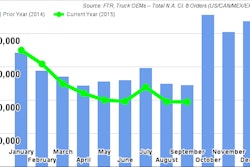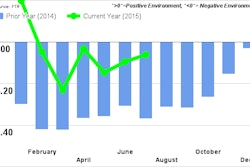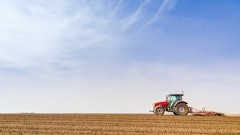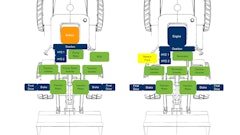For the second year in a row, the rate of global agricultural productivity growth continues to stagnate, says a report by the Global Harvest Initiative (GHI). GHI’s 6th annual Global Agricultural Productivity Report (2015 GAP Report): Building Sustainable Breadbaskets warns that unless this trend is reversed, the world may not be able to sustainably provide the food, feed, fiber and biofuels needed for a booming global population.
Global agricultural productivity must increase by 1.75% annually in order to meet the demands of an estimated 9.7 billion people in 2050. According to GHI’s annual assessment of productivity growth – the GAP Index – the current rate of growth is only 1.72%. The rate of annual productivity growth in low-income countries is much lower, only 1.5%. At this rate, 15 years from now (2030) sub-Saharan Africa will only be able to meet 14% of its food demand, driving up food prices for poor households and requiring significant imports, food assistance and opening up environmentally sensitive land for agricultural production.
Productivity growth in the United States is also stagnating, from its historical average of 1.5 to 2% (1960 to 2000) to less than 1% (2001-2010), generating concerns about the long-term potential for sustainable agricultural and economic growth. Agriculture is a key driver of the U.S. economy, providing $2 trillion in revenue annually and employing 19 million people. U.S. consumers spend just 6% of their disposable income on food – the lowest rate in the industrialized world.
The GAP Report highlights the powerful legacy of the United States’ agriculture and conservation system and also urges continued commitment and investment in order to generate new innovations that produce more food, feed, fiber and biofuel while simultaneously conserving soil, water and other precious natural resources. The report also shines a spotlight on Zambia, a country that is diversifying its agricultural production systems and building its capacity to become a regional breadbasket in southern Africa.
“Raising global agricultural productivity requires long-term investments in the research and development of science-based agricultural technologies, agricultural extension services and education for farmers around the world, efficient transportation and telecommunications infrastructures, and support for the next generation of farmers,” says Dr. Margaret Zeigler, Executive Director of GHI. She continues, “We also need agreements for better facilitation of global and regional trade and we must prioritize agriculture technologies and practices that help mitigate climate change and conserve natural resources.”
“By combining precision agriculture with advances in seed, fertilizer and bioagriculture technologies, we are able to 'farm smart', meaning farmers can produce more while also conserving and protecting soils, water and the natural resource base,” says Cory Reed, Vice President of John Deere’s Intelligent Solutions Group and Chair of the GHI Board of Directors.
GHI presented the GAP Report’s findings before an audience of farmers and global leaders in science, research, policy and private agriculture industry attending the World Food Prize in Des Moines, IA. Panelists discussed how to cultivate resilient food and agriculture systems in the United States and Zambia, and how the right policies and public-private partnerships advance resilience and help manage risk.
Dr. Margaret Zeigler, Executive Director of GHI, was joined by Colin Bletsky, Vice President of BioAg, Novozymes; Cory Reed, Vice President of the Intelligent Solutions Group, John Deere; Dr. Keith Fuglie, Economist, USDA Economic Research Service; Ruth Ann Myers, National Vice President, Future Farmers of America (FFA); and Dr. Phyllis Muturi, Makerere University, Uganda and Embu University College, Kenya (AWARD Scholar, Iowa State).



















